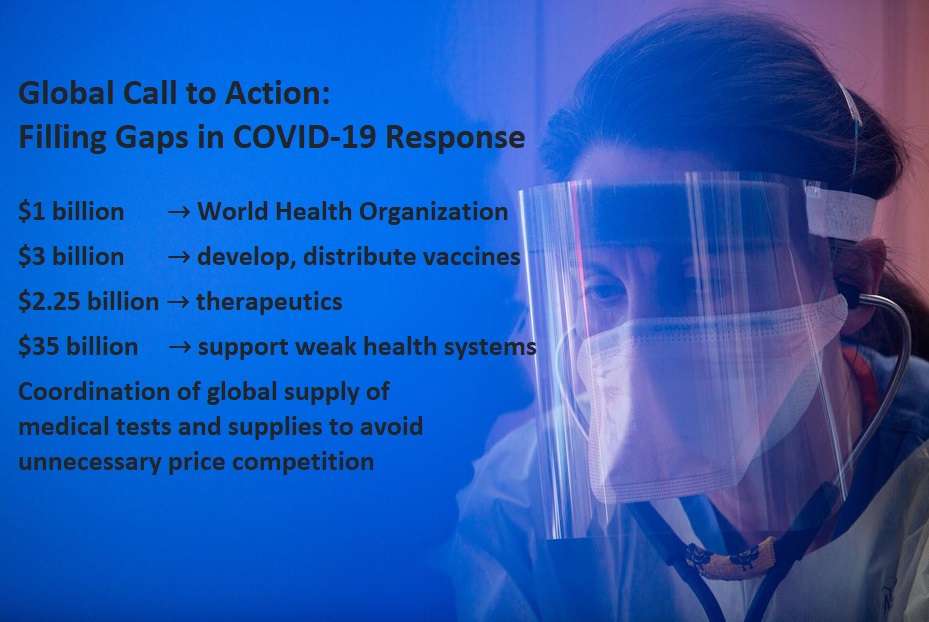Global Call for Action
More than 200 political leaders, economists, academics and directors of NGOS have issued a call to action from G20 governments, urging immediate global coordination and emergency measures for addressing the COVID-19 pandemic and economic crisis. Both crises “require world leaders to commit to funding far beyond the current capacity of our existing international institutions,” explains the letter, adding “the health emergency will not end simply by conquering the disease in one country alone, but by ensuring recovery from COVID-19 in all countries.” The crisis challenges all countries, but will be particularly severe for developing nations with short supplies of medical equipment and providers. Even clean water for washing hands is in short supply. The leaders call for $35 billion investment in the World Health Organization for nations with weak health systems. About one third of all countries lack a COVID-19 national preparedness response plan and half lack national infection prevention programs. On the economic side, the leaders urge preventing a liquidity crisis and global depression with swap arrangements among the central banks, emergency financial support, and support for companies and individuals as well as refugees and displaced people. The letter also recommends waiving this year’s debt repayments for the world’s poorest nations. – YaleGlobal
Global Call for Action
More than 200 global leaders call for an immediate response from G20 nations to address the health and economic crises of COVID-19
Thursday, April 9, 2020
Read the letter from more than 200 global leaders. Signatories include former heads of state for Italy, Hungary, Israel, Sweden, Chile, South Africa, Spain, the United Kingdom, Liberia, Ghana, Finland, New Zealand and Mexico – including Ernesto Zedillo, director of the Yale Center for the Study of Globalization at Yale University.

Call to Action